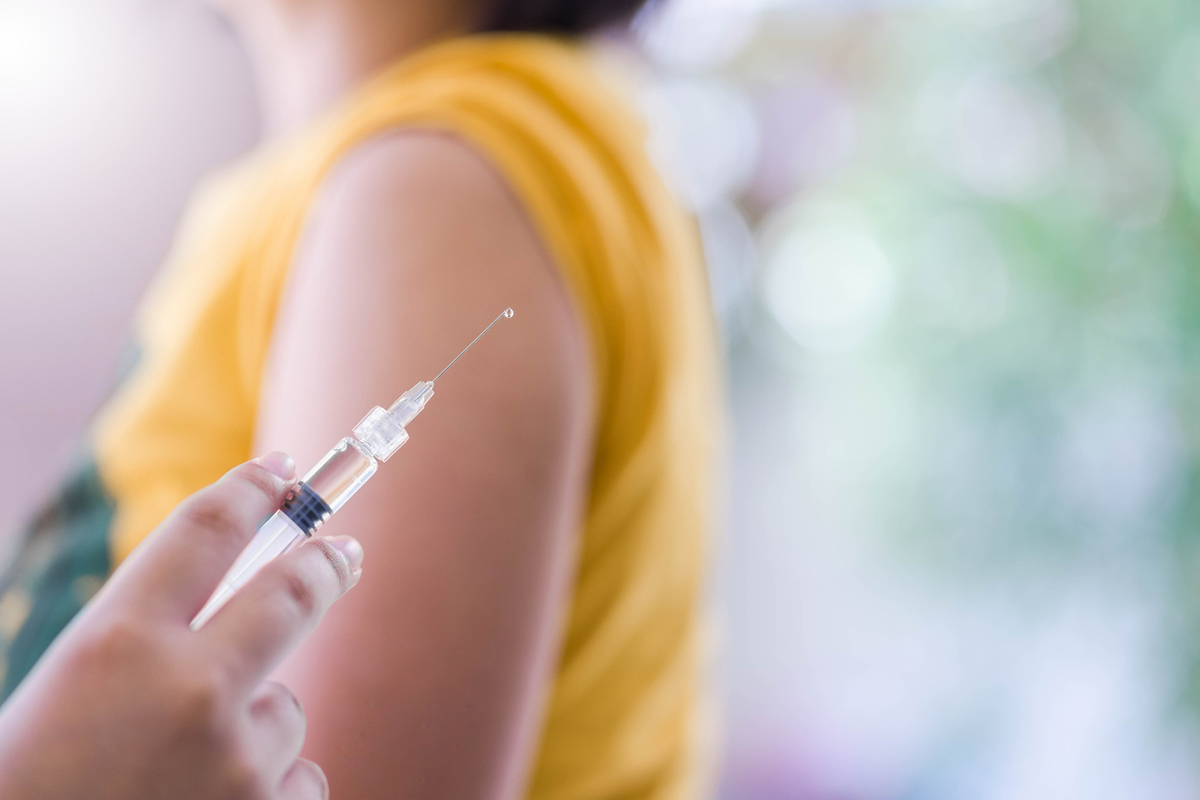Kimberly Blumenthal, MD, quality and safety officer for allergy at Massachusetts General Hospital, told NBC that she advises people ask, “Do they have an anaphylaxis kit?” before getting vaccinated. Anaphylaxis is a dangerous reaction that can occur in just minutes, constricting the airways and sending the body into shock. Without a proper anaphylaxis kit, professionals at the site won’t be able to help you if you have a severe reaction to the vaccine. Guidelines on the Centers for Disease Control and Prevention’s (CDC) website say, “COVID-19 vaccination sites should have at least three doses of epinephrine on hand at any given time.” “You want to be able to treat anaphylaxis” on-site, Mitchell Grayson, MD, an allergist-immunologist with Nationwide Children’s Hospital, told NBC. If your COVID vaccination site doesn’t have an anaphylaxis kit, you need to find another location. And for more up-to-date information, sign up for our daily newsletter. Blumenthal said you should also ask if they can take vital signs at the COVID vaccination site. The ability to take your vitals will help the professionals at the site monitor if something goes awry after you receive your vaccine. Your vitals measure your body’s most basic functions and include your body temperature, pulse rate, and your rate of breathing, according to Johns Hopkins Medicine. Blood pressure is often also taken along with your vitals. And for more vaccine warnings, discover The Only 2 People Who Shouldn’t Get the COVID Vaccine, FDA Official Says. Grayson says it’s essential that these locations are “in a place where an ambulance can arrive within five to 10 minutes” in the case of an emergency. Even with an anaphylaxis kit, if the reaction is severe enough, the patient should be taken to a hospital as soon as possible. The CDC reported at least 29 cases of anaphylaxis following the vaccine, and all recipients have recovered. Anaphylaxis in response to the COVID vaccine is rare, with about 5.5 cases for every million vaccinations in the U.S., but it is still about five times higher with the COVID vaccine than with the flu shot, per NBC. Some of the reported reactions occurred in people who had no previous history of allergic reactions, which means everyone should be proactive about understanding anaphylaxis. And for coronavirus information you need to know, If You Have One of These Symptoms, the CDC Says Go to the Hospital Now. The vaccine will eventually be administered by various people, including the National Guard, dentists, and pharmacists. Experts are insisting that these professionals get educated about the signs of anaphylaxis. As reported by NBC, Nancy Messonnier, MD, director of the CDC’s National Center for Immunization and Respiratory Diseases, told reporters on a call, “We are really pushing to make sure that anybody administering vaccines needs not just to have the EpiPen available, but, frankly, to know how to use it.“ae0fcc31ae342fd3a1346ebb1f342fcb Messonnier said those administering the vaccine should also know the warning signs that someone may need advanced care. The CDC recommends that anyone who gets the COVID vaccine be observed for signs of anaphylaxis for at least 15 minutes following their vaccination. Signs of anaphylaxis include shortness of breath, skin reactions, nausea, vomiting, dizziness or fainting, and life-threatening problems, such as low blood pressure and throat closing, according to the CDC. And for more on vaccine complications, Dr. Fauci Just Gave This Warning About COVID Vaccine Side Effects.




